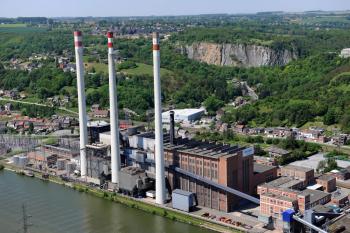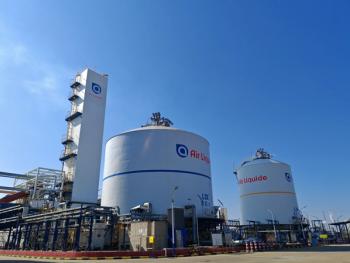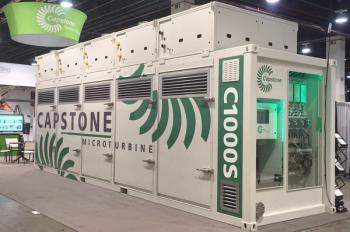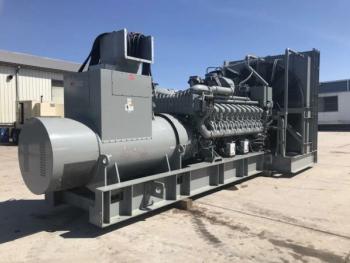
CC Energy Pursues Zero Gas Flaring for Oman Power Project
Greenhouse gas emissions may be cut by 30% as CC Energy transitions toward zero gas flaring for Blocks 3 and 4.
CC Energy & Development (CCED) has executed the beginning phases of a flare gas-to-power project in the Blocks 3 & 4 (Afar & Ghunaim) operations on the eastern coast of Oman. CCED aims to reduce its greenhouse gas (GHG) emissions through achieving zero gas flaring by 2027. In a working partnership with Aggreko, CCED will replace diesel fuel with unutilized associated gas—a byproduct of crude oil production—to generate electrical power for field production assets, such as facilities, wells, and camps. The project is estimated to reduce GHG emissions by 30%.
"Our flare gas-to-power project positively impacts our operational efficiency while lowering our carbon and environmental footprint. We aim to lead by example as both sustainable practices and digital transformation continue to play a role in the energy industry and beyond,” said Walter Simpson, Managing Director at CC Energy Development. “This project will also support us in effectively managing waste resources, and, more importantly, its objectives are aligned with the Oman Vision 2040, of which carbon neutrality and combatting climate change are essential components."
Aggreko, to reduce gas flaring and convert flare gas to a power source, implemented a solution that uses current gas capture and conversion technologies. The company is taking charge of the design, construction, operation, and maintenance of two separate gas-to-power plants within the operational framework of CCED’s Blocks 3 and 4, utilizing 33 MW of power at 33 kV.
"Companies are placing a greater focus on sustainable practices and renewable energy sources. We are a partner in flare gas-to-power projects and CC Energy Development chose to use our power solution to convert flared gas into greener electricity,” said Matt Parker, Managing Director at Aggreko AMEA. “As a result, we believe this project will reduce the quantity of flared gas, cut greenhouse gas emissions, and convert gas into a more sustainable power source."
In addition to reducing GHG emissions for the Oman plants, CCED will offer support with sustainable water and waste management solutions. The flare gas-to-power project will lessen environmental impact, reduce diesel consumption, eliminate fuel transportation risks, and promote cost-efficiency.
Newsletter
Power your knowledge with the latest in turbine technology, engineering advances, and energy solutions—subscribe to Turbomachinery International today.





